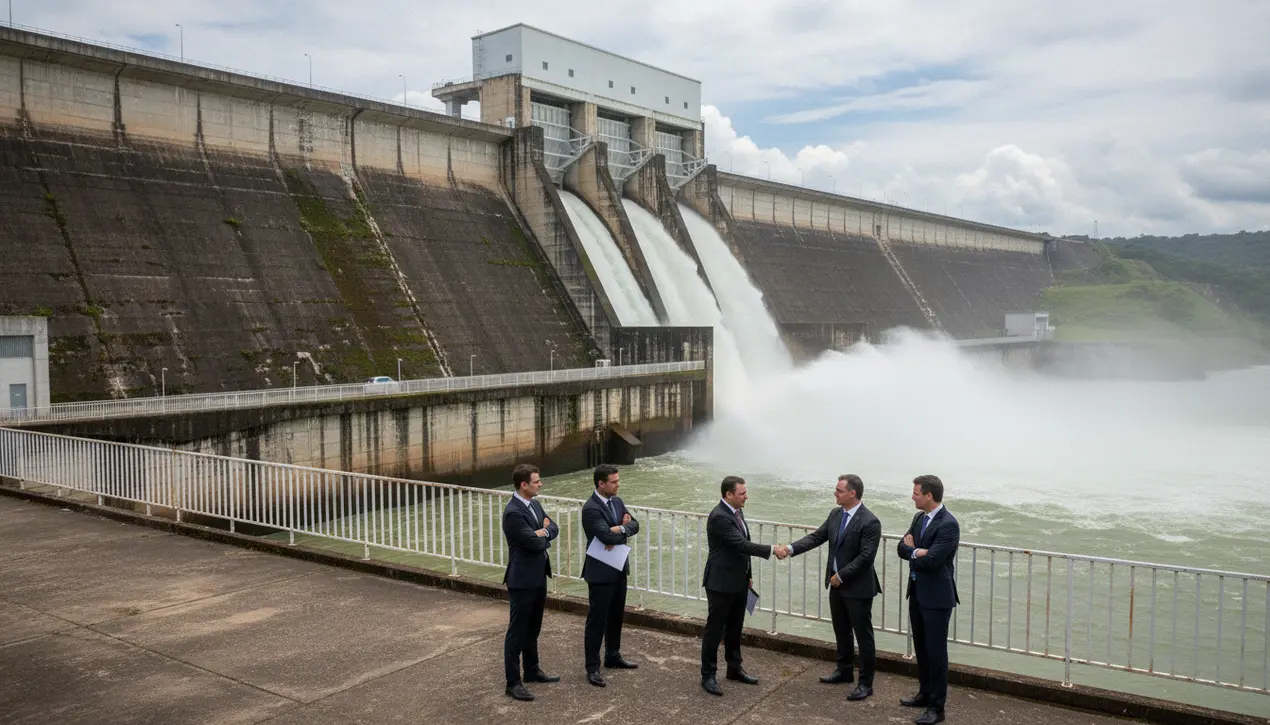
PoliticsdiplomacyBilateral Relations
Brazil and Paraguay Resume Itaipu Hydropower Negotiations After Espionage Scandal
OL
Oliver Scott
3 hours ago7 min read
The resumption of official dialogue between Brazil and Paraguay over the Itaipu Binacional Hydropower plant, announced in a joint statement on Monday, marks a critical de-escalation following a severe bilateral crisis triggered by a Brazilian espionage operation that came to light in April. This incident, where Brazilian intelligence agents allegedly sought to access classified information regarding the dam's complex tariff structures, represented more than a mere diplomatic spat; it was a direct assault on the foundational trust required to manage one of the world's most significant operational hydroelectric facilities, a $16 billion behemoth on the Paraná River that provides nearly 90% of Paraguay's electricity and over 10% of Brazil's consumed power.The fallout was immediate and predictable: Paraguay suspended all negotiations, a move that threatened to destabilize the delicate 50/50 ownership framework established by the 1973 Treaty of Itaipu, a relic from an era of vastly different geopolitical and economic power balances between the two nations. For risk analysts, this scenario presents a classic case study in resource nationalism and asymmetric partnership strain.Paraguay, endowed with an energy surplus it is legally obligated to sell to Brazil at pre-negotiated, often contentious rates, has long viewed the existing financial model as a legacy of an inequitable past, a sentiment that has only grown with its own economic development. The espionage scandal provided Asunción with significant leverage, painting Brasília's actions as those of a desperate larger power seeking an unfair advantage ahead of high-stakes talks.The resumption of talks suggests a calculated decision by both sides to step back from the brink, likely driven by the immense mutual financial and energy security costs of a prolonged stalemate. However, the path forward remains fraught with geopolitical risk.The core dispute—the fair valuation of the energy and the review of the Annex C financial conditions—is now overshadowed by a profound trust deficit. Future negotiations will necessitate third-party verification mechanisms or enhanced transparency protocols to prevent a recurrence.The regional implications are also significant; any prolonged instability at Itaipu sends shockwaves through MERCOSUR and affects energy markets in Argentina and Uruguay, which are indirectly tied to the basin's output. While the joint statement signals a temporary détente, the underlying structural tensions and the fresh scar of espionage mean that the Itaipu negotiations will remain a high-risk file, vulnerable to political posturing in both capitals and susceptible to further shocks that could once again halt the flow of both diplomacy and power.
#lead focus news
#Brazil
#Paraguay
#Itaipu Dam
#hydropower
#espionage
#tariffs
#binational relations
Stay Informed. Act Smarter.
Get weekly highlights, major headlines, and expert insights — then put your knowledge to work in our live prediction markets.
Related News
Comments
Loading comments...
© 2025 Outpoll Service LTD. All rights reserved.